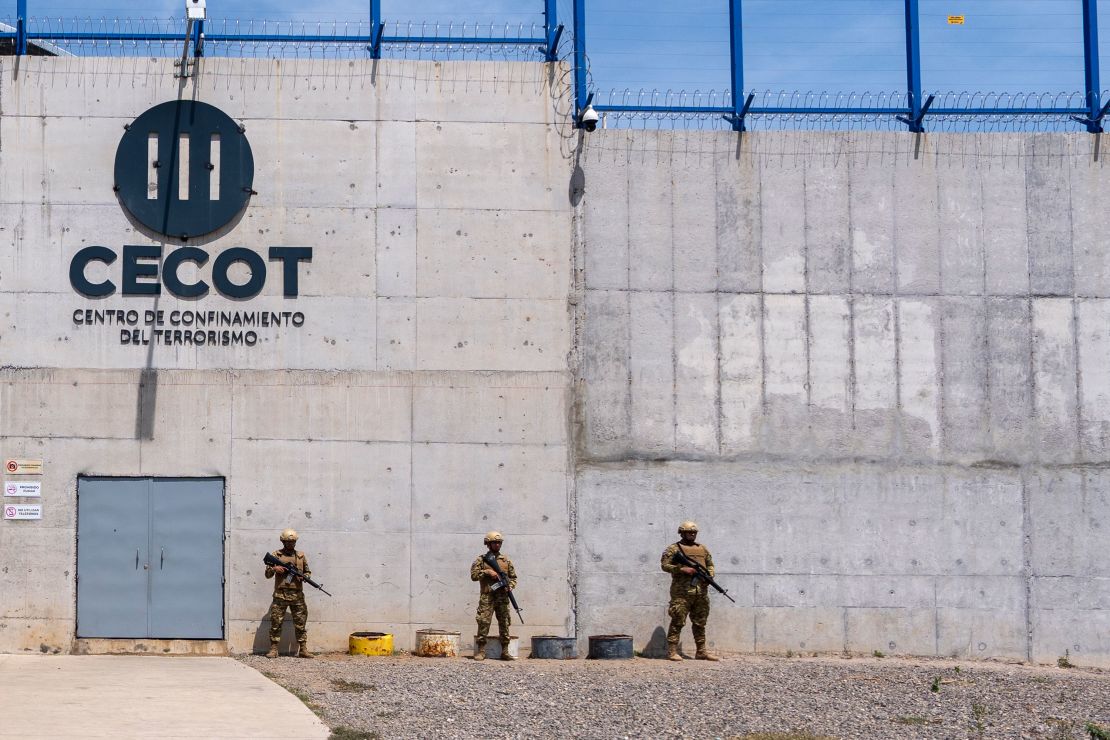Johnstown, Pennsylvania
CNN
—
The Trump administration doubled down Monday on how it is viewing Venezuelan detainees in the US that could be subject to removal under the Alien Enemies Act, telling a federal judge in Pennsylvania one detainee isn’t designated to be sent to a brutal Salvadoran prison under the wartime authority at this time but the administration could move quickly if it wanted.
Justice Department lawyer Michael Velchik argued the detainee’s status should be enough to keep a judge out of the matter at a hearing Monday in the federal court in Johnstown, Pennsylvania. Yet he refused to say whether the detainee’s status could change if the administration believes that they are affiliated with the gang Tren de Aragua.
The hearing highlighted how quickly the Trump administration has moved in its hardline approach to undocumented immigrants, and how little time it has given detainees it believes are members of Tren de Aragua before moving them to other detention centers and putting them on planes. Court cases challenging the practices, including the hearing on Monday, have slowed down some deportations to the Salvadoran prison CECOT, and raised doubts over the Trump administration’s willingness to give migrants due process.
“Is there any possibility even in the future, even in the slightest,” that the federal authorities wouldn’t change the detainee’s designation to make him what they say is an alien enemy who could be sent to the Salvadoran prison, federal Judge Stephanie Haines of the Western District of Pennsylvania asked.
“I’m not aware of any intent to do so,” Velchik said in the hourlong court hearing Monday. “I wouldn’t want to concrete that.”
The argument is the latest attempt by the Justice Department to defend Trump’s use of the Alien Enemies Act, which had never before been used outside of major wars. The Pennsylvania court hearing on Monday adds to a list of eight cases where judges are considering challenges from detained Venezuelan men who argue they shouldn’t be sent to the CECOT prison in El Salvador, especially without immigration proceedings before they are loaded onto planes.
How Haines rules is likely to be notable, because she is both a Trump appointee to the federal bench, and she agreed to look at the Alien Enemies Act for a detainee who was held in Pennsylvania last month as well as others who pass through an immigration detention hub in central Pennsylvania.
The unnamed detainee is facing more traditional immigration proceedings now, and the Trump administration has said in immigration papers he has a connection to Tren de Aragua. The man is being held in a Texas detention facility where other Venezuelans accused of being Tren de Aragua are also being held.

The Justice Department said on Monday there’s no one in western Pennsylvania currently that the administration plans to send out of the country under the AEA.
The Trump administration also argued to Haines on Monday that if they change detainees’ statuses, the window to challenge can be fewer than two days. The lawyer said there could be 12 hours for detainees to say they’d like to challenge their removal from the US under the Alien Enemies Act, if they are designated as that, and another 24 hours to make initial filings in court.
“I understand reasonable notice, but they have to be given time to challenge,” Haines said during the hearing. “How is that supposed to be done under either your 12- or 24-hour theory?”
“The government believes this is reasonable,” Velchik responded.
The American Civil Liberties Union, which is representing the detainee formerly in Pennsylvania, others potentially like him and several other men the administration aims to send to El Salvador, says that’s not enough time. They’ve also said immigration authorities aren’t giving detainees clear enough direction on how to challenge their removal, if they’re about to be sent to El Salvador under the Alien Enemies Act, in notices in their native language of Spanish.
Lee Gelernt of the ACLU argued at the hearing the detainees are being deprived of due process because the Alien Enemies Act is being used outside of typical immigration proceedings, and it’s also not a time of war where the US is being invaded by the country of Venezuela or a militarized Tren de Aragua gang.
“Any ethnic, religious group could be tagged” as one whose members could be subject to the Alien Enemies Act without due process proceedings before being sent to the foreign prison, Gelernt argued to the judge. “That gets into very dangerous territory,” he said. “There’s really no question the prison in El Salvador is one of the most brutal prisons and engages in torture.”
Haines didn’t tip her hand on how she would rule at the Monday hearing. Previously, she blocked the administration temporarily from deporting the detainee and others passing through her western Pennsylvania district whom the administration may want to send to El Salvador.

